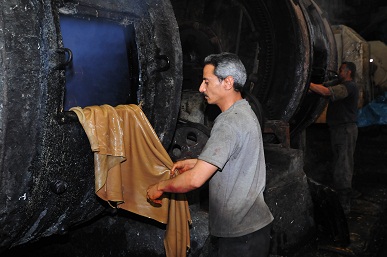Ibrahim Khalife, a programmer in Beirut, saves around $500 monthly to buy gold nuggets at a time of high inflation and market volatility.
“Of course, I cannot be certain that the gold price will go up, but I believe it is better to buy gold than keep my savings in banks,” Khalife told Xinhua.
The loss of confidence in Lebanon’s collapsing bank sector has triggered depositors to move their money to spot gold and other assets viewed as safe havens.
Among them is housewife Mona Hamdan, who allocates a few hundred dollars from the monthly allowance sent by her husband working in Saudi Arabia to buy gold.
Lebanon is facing an unprecedented financial crisis amid a shortage of foreign currency reserves, with the Lebanese pound losing as much as 98 percent in value since late 2019.
Johnny Medawar, the owner of a jewelry shop in Beirut, told Xinhua that demand for gold ounces and coins doubled over the past year as people came to realize that it can generate impressive returns at certain points.
Barihan Al-Hafi, another jewelry store owner, depicted today’s gold market as even more bullish.
He told Xinhua that two years ago, he sold about one ounce weekly, now he sells tens of ounces and hundreds of coins in a month.
“When we are running out of coins and ounces, some people turn to buy gold necklaces and bracelets instead,” he said.
Head of the Gold and Jewelry Syndicate Naim Rizk told Xinhua that the remarkable increase in demand for gold led to a significant shortage in the Lebanese market, and many merchants were forced to wait to receive imported quantities to meet the large volume of local orders.
Over the past six months, the price of gold has risen approximately 20 percent to more than $2,000 per ounce, within striking distance of gold’s all-time high of $2,075, according to Forbes.
A quarterly market report published by the World Gold Council in early May shows central bank demand hit 228 tons in the first quarter of 2023, 34% higher than the previous Q1 record, set in 2013.
Rizk attributes the rise in gold demand globally to factors including key oil exporting countries that are active in talks to expand non-dollar oil trade, a move that hammers the dollar.
Ziad Nasreddine, an economist and researcher, attributes the rise in demand to uncertainty in US interest rates, and growing concerns about the US banking system.
Nasreddine said that many Lebanese possess dollars cash and are concerned that the American currency may lose its value, which prompts them to buy gold.



